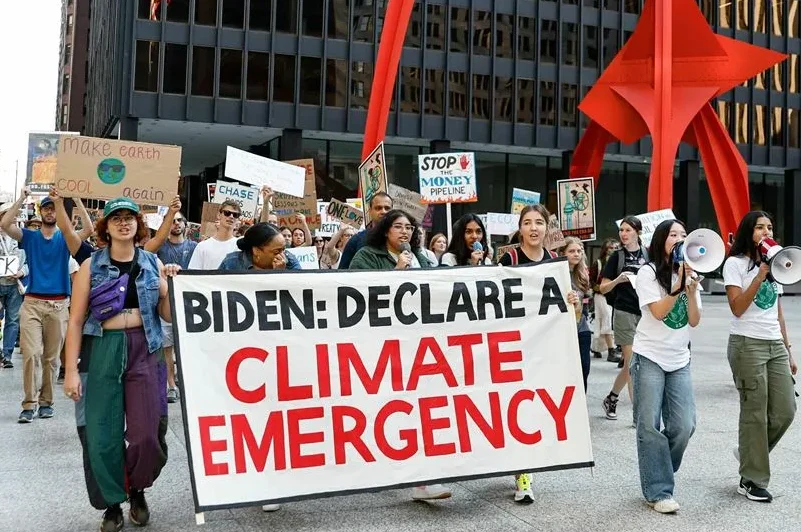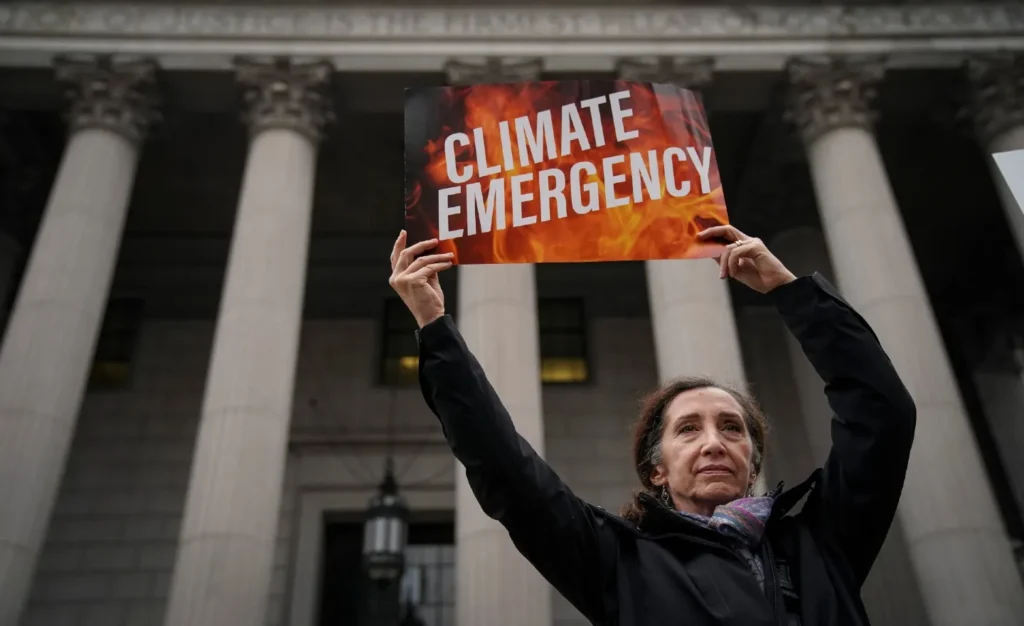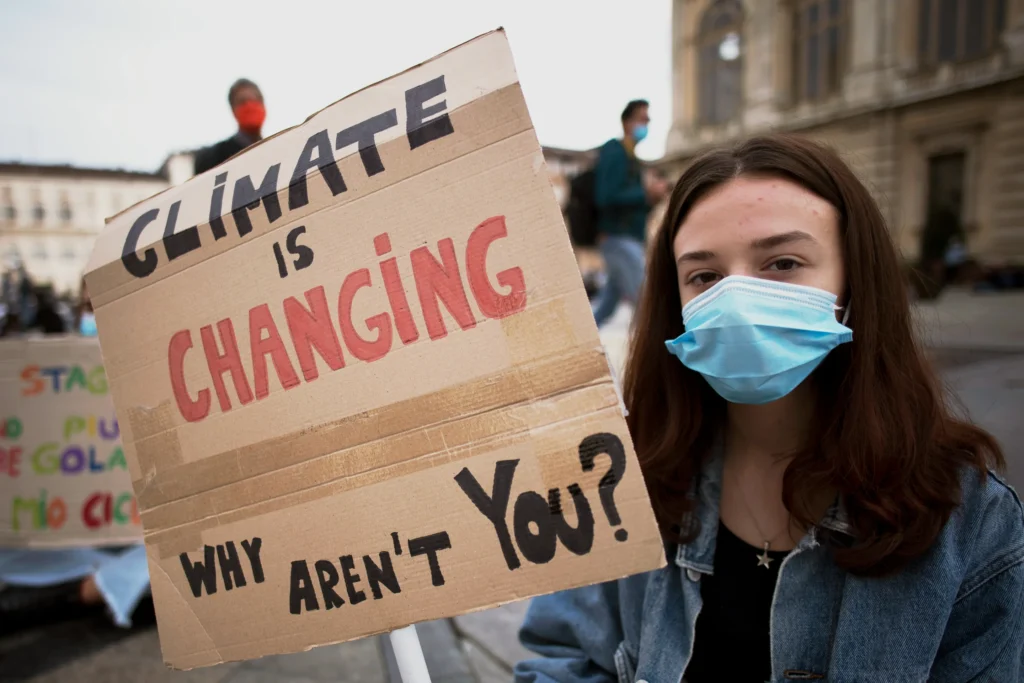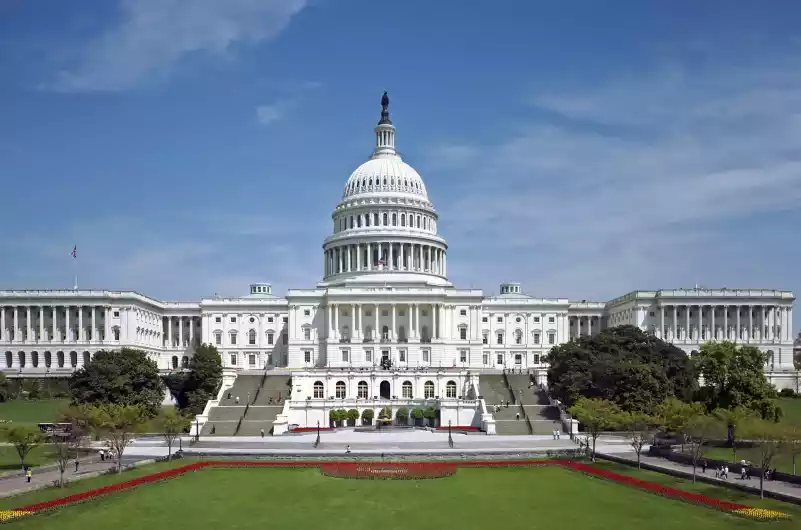The issue of climate change enters the election discussion

The issue of climate change enters the election discussion as a point that does not have clear accounts from both contenders with the best chance.
Joe Biden and Donald Trump have very different trajectories on climate change.
For some analysts, the issue of climate change enters the electoral discussion, but which, in addition, has very different proposals on both political sides.
If American voters are asked what their main problems are, most will point to issues of the economy, inflation, crime, healthcare or education.
Less than 5% of respondents in the 2023 and 2024 Gallup polls said climate change was the most important issue facing the country.
This figure, while well under the table, is still considerable, when taking into account, some key states.

Climate change issue enters the election debate
But concern about climate change has had a significant effect on voter choice in the last two presidential elections.
Views on climate change may even have had a large enough effect to swing the outcome of the 2020 election in favor of President Joe Biden.
The conclusion from an analysis of polling data released on January 17, 2024, through the Center for Social and Environmental Futures at the University of Colorado.
READ MORE: U.S. INTELLIGENCE REPORT ON NICOLÁS MADURO
On the data, 2016 and 2020 polls from the nonpartisan Voter Study Group were used to analyze the relationships between the presidential choice of thousands of voters in the last two elections with their demographics and their views on 22 different issues, including climate change.
The survey asked voters to rate the importance of climate change with four options: “not very important,” “not very important,” “somewhat important” or “very important.”
In 2020, 67% of voters rated climate change as “somewhat important” or “very important,” up from 62% in 2016. Of these voters who rated climate change as important, 77% supported Biden in 2020, up from 69% who supported Hillary Clinton in 2016.
READ HERE: CONCERNS ABOUT THE NUMBER OF RUSSIAN PUBLICATIONS.

Democrats at an advantage
This suggests that opinion on climate change has been providing Democrats with a growing electoral advantage.
Thus, the issue of climate change enters the electoral discussion and requires a very well-defined strategy.
Using two different statistical models, we estimated the opinion on climate change that could have shifted the 2020 national popular vote margin (percentage of Democratic votes minus percentage of Republican votes) by 3% or more toward Biden.
So, if most voters – even Democrats – do not consider climate change as their top issue, how might opinion on climate change have tipped the 2020 presidential election?
First, recent presidential elections have been close.
This means that opinion on climate change would not need to have a very large effect on the vote to swing the election results.
Close Elections and Key Issues
In 2020, Biden won Georgia by about 10,000 votes–0.2% of votes cast--and Wisconsin by about 20,000 votes, 0.6% of votes cast.
Second, candidates who deny that climate change is real or a problem may turn off some moderate voters, even if climate change is not the main issue for them.
Third, some voters may begin to see connections between climate change and everyday issues that they see as higher priorities than climate change. For example, there is strong evidence that climate change affects health, national security, the economy, and immigration patterns in the United States and around the world.
According to this study, the 2016 and 2020 presidential elections, climate change became increasingly important to voters, and the importance voters assign to climate change became increasingly predictive of voting for Democrats. If these trends continue, climate change could provide Democrats with an even greater electoral advantage in 2024.
However, if the election were held today, the totality of evidence suggests that most voters would prefer a climate-conscious candidate.
In that sense, most climate-conscious voters currently prefer a Democrat.






